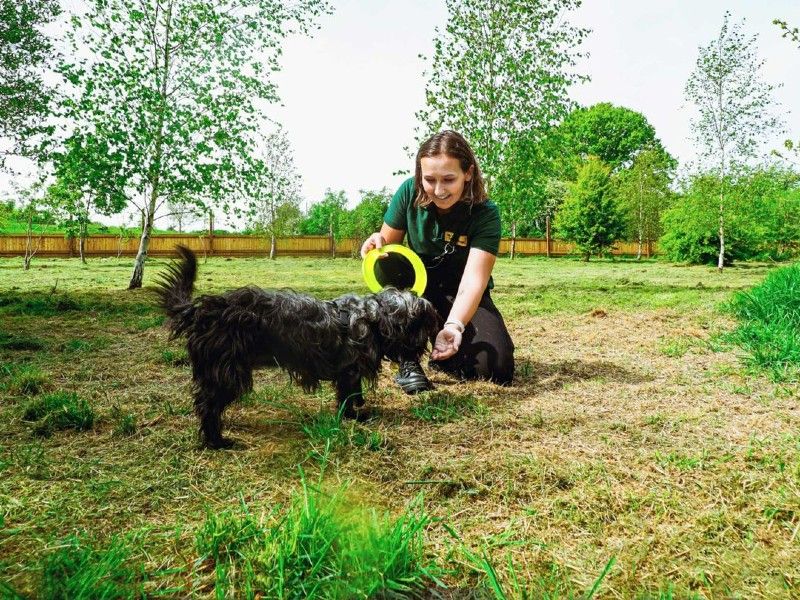Top 10 dog training tips
Are you about to start training your dog? Check out our top tips to ensure it is a success.

When you introduce a dog to your family it’s important to do some basic training with them. That way, you can teach them how to behave and help prevent unwanted behaviours from developing. Training with rewards is also fun and will help to build a positive bond between you and your new pup. Start in the home and once they have mastered the basics, you can begin to try it outside, too.
Taking the time to do training with your dog, that will teach your pooch basic skills, will benefit you both in a wide range of situations. Most importantly keeping them safe on walks and days out.
Here’s a few of the most common skills to get you started:
Top tip: A marker is a clear signal that tells your dog they’ve got it right and can be really helpful when training a new behaviour, like saying “Yes!” or “Good”. So, before your start, find out exactly what a marker is and learn how to introduce it to your pooch.
10 tips for training your dog
Before you start training your pup, here are 10 tips to help ensure that it is a success.
1. Try it without your dog first, so you are clear and can avoid confusing them.
2. Ensure the training is done in a calm space that is free of distractions.
3. Make sure your dog has eaten and been to the toilet before you start.
4. Only use positive reinforcement – reward with praise or a tasty treat and mix up what you use keep it interesting for your pooch.
5. Show your pooch what you want them to do, don’t physically force them to do it.
6. Be calm and consistent.
7. Keep training sessions short (five to 10 minutes at a time) – and focus on training one behaviour before ending the session with a fun game.
8. Record your progress – you could film it and / or write it down.
9. Be patient. If pup is struggling, stop and go back a step and progress more slowly next time.
10. Have fun and enjoy yourself – if either of you aren’t, pick it up another day.
Just as puppies don’t know what sit or leave means until you have taught them, they may also display other unwanted behaviours. This could be going to the toilet inside or pulling on the lead. You’ll want to prevent these before they can become an issue. So, check out the 10 common puppy problems and how to solve them.
If you would like a hand with the basics, then check out our dog school classes. Here your puppy will learn the essentials which will help prevent problem behaviours from occurring as they get older. Is your pooch really struggling with their behaviour? Then contact your vet who will be able to put you in touch with an accredited behaviourist.








